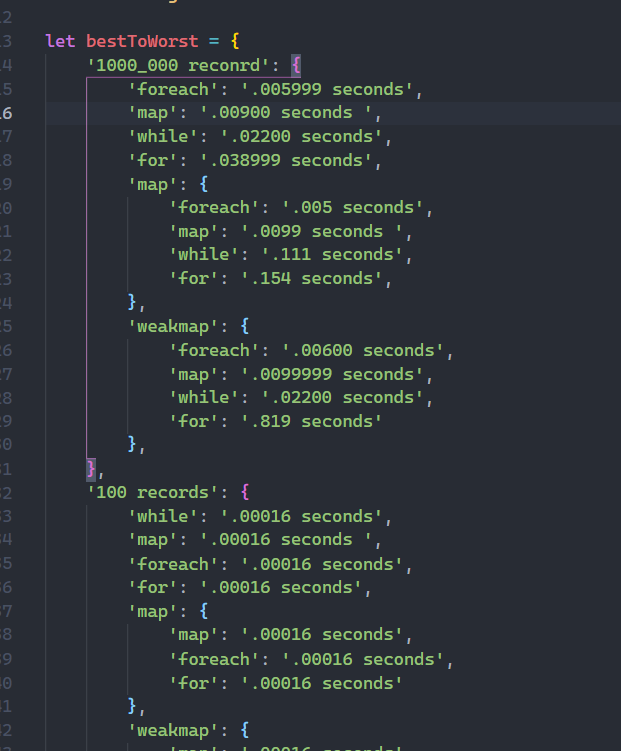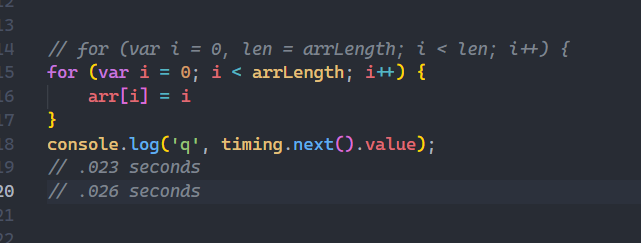2014 While is back
Just think logical.
Look at this
for( var index = 0 , length = array.length ; index < length ; index++ ) {
//do stuff
}
- Need to create at least 2 variables (index,length)
- Need to check if the index is smaller than the length
- Need to increase the index
- the
for loop has 3 parameters
Now tell me why this should be faster than:
var length = array.length;
while( --length ) { //or length--
//do stuff
}
- One variable
- No checks
- the index is decreased (Machines prefer that)
while has only one parameter
I was totally confused when Chrome 28 showed that the for loop is faster than the while.
This must have ben some sort of
"Uh, everyone is using the for loop, let's focus on that when
developing for chrome."
But now, in 2014 the while loop is back on chrome. it's 2 times faster , on other/older browsers it was always faster.
Lately i made some new tests. Now in real world envoirement those short codes are worth nothing and jsperf can't actually execute properly the while loop, because it needs to recreate the array.length which also takes time.
you CAN'T get the actual speed of a while loop on jsperf.
you need to create your own custom function and check that with window.performance.now()
And yeah... there is no way the while loop is simply faster.
The real problem is actually the dom manipulation / rendering time /
drawing time or however you wanna call it.
For example i have a canvas scene where i need to calculate the coordinates and collisions... this is done between 10-200 MicroSeconds (not milliseconds). it actually takes various milliseconds to render everything.Same as in DOM.
BUT
There is another super performant way using the for loop in some cases... for example to copy/clone an array
for(
var i = array.length ;
i > 0 ;
arrayCopy[ --i ] = array[ i ] // doing stuff
);
Notice the setup of the parameters:
- Same as in the while loop i'm using only one variable
- Need to check if the index is bigger than 0;
- As you can see this approach is different vs the normal for loop everyone uses, as i do stuff inside the 3th parameter and i also decrease directly inside the array.
Said that, this confirms that machines like the --
writing that i was thinking to make it a little shorter and remove some useless stuff and wrote this one using the same style:
for(
var i = array.length ;
i-- ;
arrayCopy[ i ] = array[ i ] // doing stuff
);
Even if it's shorter it looks like using i one more time slows down everything.
It's 1/5 slower than the previous for loop and the while one.
Note: the ; is very important after the for looo without {}
Even if i just told you that jsperf is not the best way to test scripts .. i added this 2 loops here
http://jsperf.com/caching-array-length/40
And here is another answer about performance in javascript
https://mcmap.net/q/36392/-how-to-39-minify-39-javascript-code
This answer is to show performant ways of writing javascript. So if you can't read that, ask and you will get an answer or read a book about javascript http://www.ecma-international.org/ecma-262/5.1/





for ... ofloop to this competition? The syntax seems even easier then a for loop without caching, and I want to know if I should switch to using for of loops. – Homecoming